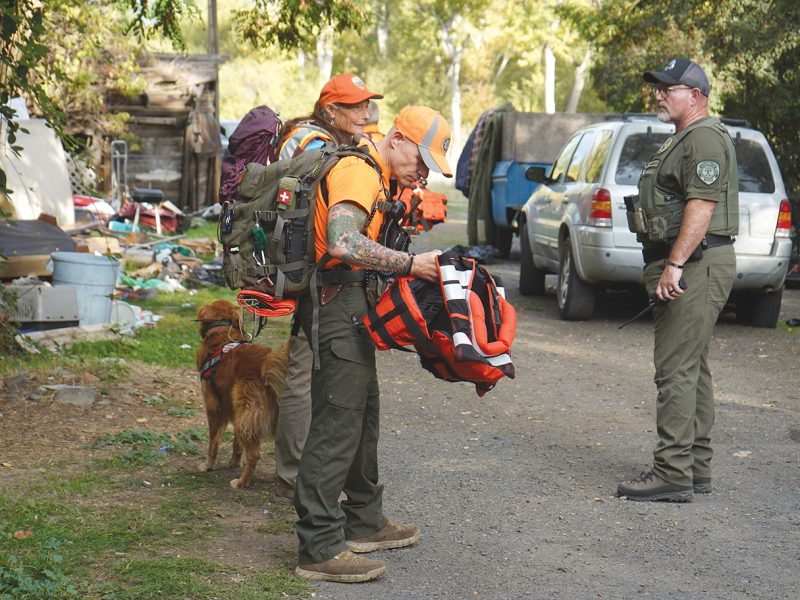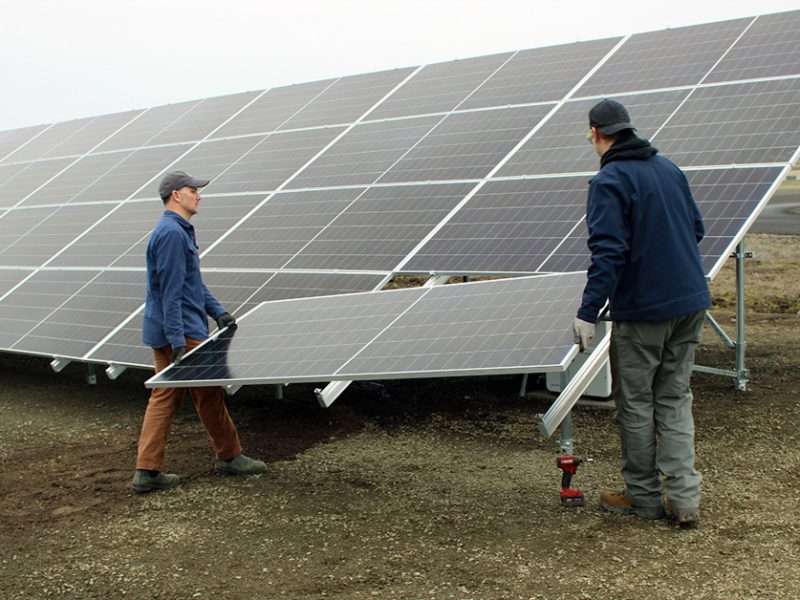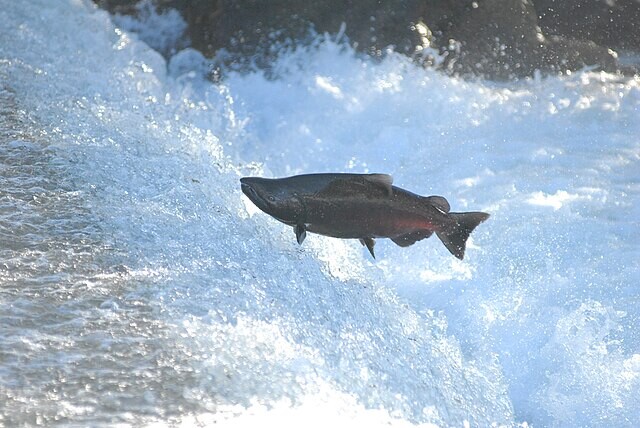By the CUJ
MISSION – A phased plan to re-open government and business on the Umatilla Indian Reservation was unveiled May 6 in a work session with the Board of Trustees for the Confederated Tribes of the Umatilla Indian Reservation (CTUIR).
The Board of Trustees (BOT) on May 11 is expected to approve a resolution authorizing implementation of the plan, which outlines a strategy for all entities of the CTUIR to reopen, including Wildhorse Resort & Casino The five-tier plan, which will rely on data collected from COVID-19 testing by Yellowhawk Tribal Health Center, also provides directives for reopening at the clinic, at Nixyaawii Governance Center, and Cayuse Holdings.
All the reopening decisions will be determined based on information gathered and analyzed from the epidemiology study being conducted this month and in June by staff from Yellowhawk and recommendations will be sent to the CTUIR Incident Command Team (ICT) for determination. The ICT will be responsible for reporting the data and decisions to the BOT on a weekly basis, according to the proposed resolution.
Yellowhawk’s COVID-19 testing plan will involve 100 CTUIR employees on the front lines of responding to the pandemic and those with frequent contact with the public. The testing will occur in three stages and will provide information on the prevalence of the novel coronavirus in the Reservation community, according to the draft resolution read at the work session.
Yellowhawk’s epidemiology study will establish baseline infection data in three test phases in two-week intervals May 13 to June 13. The study populations will be 50 volunteer employees from Yellowhawk and 50 volunteer employees from Wildhorse, Arrowhead, Mission Market, the CTUIR Department of Children and Family Services, Tribal Police and Kayak Transit.
At the meeting May 6, Yellowhawk CEO Lisa Guzman said the study still needs volunteers. She said Tribal members willing to volunteer for the nasal swab and antibody blood tests should contact the clinic. Yellowhawk plans to do contact tracing for any persons that test positive. The presentation was the work of the Tribal Reopening Committee Report, which was recommended to the BOT by the CTUIR Incident Command Team. Incident Commander Chuck Sams led the meeting with presentations from Ted Wright, CTUIR Executive Director; Al Tovey, Casino manager at Wildhorse; Lisa Guzman, CEO at Yellowhawk; and Billy Nerenberg, CEO at Cayuse Holdings.
Wildhorse CEO Gary E. George announced at the work session that the annual July 4 Wildhorse Pow-Wow is being cancelled this year.
Among many other things, the re-opening guidelines will require Wildhorse employees and customers to wear masks while they are moving about the casino floor. Al Tovey, the “architect” of a 30-page reopening plan for Wildhorse, said the hotel, gift shop, restaurants in a limited fashion, Hamley Steakhouse and the Western Store in Pendleton, and both golf courses are tentatively scheduled to reopen to the public in mid-May. A reconfigured gaming floor may open, Tovey said, in late May.
In order to reopen, Tovey said, guests will be required to wear masks when they are moving around the casino floor. They will not be required to wear a mask when they are eating, drinking or gambling at a machine. They will be able to smoke while playing the slots. Slot machines will be wiped down multiple times an hour.
“Whenever we see someone get up we’ll get over and clean it,” Tovey told the BOT.
There will be 21 refillable sanitizer stands “everywhere” around the casino and hotel. The casino will be closed from 3-7 a.m. Monday through Thursday for cleaning. Entrances will be limited to the hotel and Cineplex with staff at the doors handing out masks. Four thermal imaging temperature gauge machines have been ordered, including one for the employee entrance at the back of the building, to make sure people aren’t showing up sick. Card games will be limited to three players per game and people will be able to play at only every other slot machine.
Tovey said 100 slot machines will be removed from the main casino floor, which will be reconfigured to make pods of slots to allow for social distancing. Some of those slots, equipped with Plexiglas dividers, may be stationed in the front end of the Rivers Event Center. Tovey said that even when the resort is “open” some things will remain closed. Machines have been pulled out of the arcade because construction on the Family Entertainment Center, part of the bowling alley complex, is continuing. Valet parking will be discontinued until COVID-19 is under control.
And poker is out until there’s a safe way to play again.
“Players sit next to each other for extended periods of time,” Tovey said. “We’re going to have to really think before we bring that back.”
Tovey said if everything went according to plan Wildhorse could be at full speed by early June.
“But things change so fast every day,” he said. “We start something and it’s scrapped by noon. I think we have a pretty good plan in place that we know we can implement it, execute it. We wanted to make sure we could do it before we tell the world we could do it.”
Ted Wright, the Tribes’ Executive Director, said some core personnel are working in the Nixyaawii Governance Center and others will be added gradually. The reopening of government operations, he said, will be decided by the ICT based on the Yellowhawk study.
Until then, visitors to the NGC will need to make an appointment or wait in an entry area for an escort to wherever they need to do business. Only the front doors will be open; the side doors will remain locked, with entry only accessible to employees with card-keys. Each Tribal department will be determining specific staffing issues, Wright said. Staggered shifts and isolation measures will also be decided by individual department directors and supervisors.
In an email message received after the meeting, Gary George said “it is ‘not a done deal’ to reopen…any re-opening will be based on some of the factors we discussed previously (declination of COVID-19 positives, based on data and science, etc). We want to open when we know we have a safe environment to do so and local health facilities have the capacity to handle any new COVID 19 cases.”



